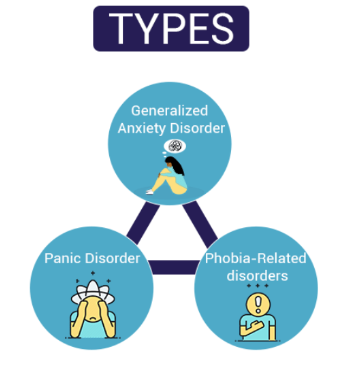Best Nasha Mukti Kendra in Punjab
A leading Nasha Mukti Kendra in Punjab – Easier path to overcome dependency.
Generally, the dependency recovery process requires more care because it is not as easy as you think. Sometimes, physical withdrawal, emotional struggle, and lack of consistent guidance may complicate them. Moreover, stress, frustration, and weak determination may stop the individual from continuing the recovery steps. But with proper assistance, they can manage stress and control emotions. That is why Nasha Mukti Kendra in Punjab always aims to offer a personalized recovery plan for each individual. A part from medical supervision, when you get individualized counseling, peer group discussions, and family support, you experience the journey without much complexity.
Furthermore, if you receive therapy and safe detoxification in a secure environment, you can try to regain control over your health easily.
The Om Nasha Mukti Foundation gives you an effective recovery platform where you can restore health and stability.

Types Of Anxiety Disorders
Generalized Anxiety Disorder
People who are affected by a generalized anxiety disorder (GAD) show excessive anxiety or worry, which stretch as far as 6 months. The cause of worry could range over many areas like personal health, social interactions, work, and daily circumstances. The extent and duration of anxiety are so high that it causes significant problems in various areas of life: work, family, social life, etc.
Panic Disorder
Patients of this condition are struck with recurrent and unexpected panic attacks. Panic attacks involve sudden, intense fear that builds rapidly within minutes. Attacks may occur without warning or be triggered by specific situations. Symptoms like sweating, trembling, or choking are common. At a Nasha Mukti Kendra in Punjab, such conditions are addressed with professional care, counseling, and structured recovery support.
Phobia Related Disorders
A phobia signifies an intense fear or hatred for specific objects or situations. The fear felt by people with phobias is out of proportion in comparison to the actual probability of danger due to the situation or object.

Types Of Phobias-
Some examples of specific phobias include the fear of:
- Heights
- Specific animals, such as dogs, spiders or snakes
- Flying
- Receiving injections
- Flood
All the above phobias have specific terms to identify the cause of the phobia
Social Anxiety Disorder:
As the name suggests, people with social anxiety disorder fear social interactions and avoid situations that require social skills or performance situations. They often worry that their anxious behavior will have negative repercussions among their social contacts and cause them embarrassment. Thus people with this disorder avoid social situations. Social anxiety disorder can influence the way a person behaves in the workplace or with acquaintances.
Agoraphobia:
People affected by agoraphobia have an intense fear of the following situations:
- Being in open spaces
- Using public transportation
- Being in enclosed spaces
- Being outside the home alone
- Standing in or being in a crowd
People with agoraphobia are seen avoiding the above mentioned situations as they believe that leaving the situation might be difficult if they panic or show other embarrassing symptoms. Patients of severe agoraphobia, are seen becoming housebound due to the same reason.
Conclusion
When you have personalized care at Om Nasha Mukti Foundation, you can get healing and manage a healthier life. So book your appointment today at our Nasha Mukti Kendra in Punjab .

Frequently Asked Questions (FAQs)
1. What extra support do I get at your Nasha Mukti Kendra in Punjab that I may not get anywhere else?
Apart from providing therapy sessions, medical detox, and counseling, we offer structured programs. So when you do meditation, yoga, and engage in other skill-based activities, you can get benefits more than just recovery.
2. How do you help patients when they come for healing from dependency?
At our nasha mukti kendra in Punjab, we use therapies (CBT, motivational enhancement, and relaxation training). In addition, our structured schedules and medical monitoring also track the improvement. Still, all patients’ progress is not the same because it completely depends on an individual’s consistency and willingness to engage with the program.
3. Is family involvement important if I need recovery from dependency?
Of course, it strengthens communication and builds emotional safety for you. But we also provide guidance to families on handling relapse triggers and providing positive reinforcement. So it is important for your long-term stability.
4. Are you reliable in providing services for my recovery from dependency?
Yes.
5. Safe methods, regular audits, and professional care standards are followed in offering recovery from dependency.
Yes, developing personality skills, discipline rebuilding, and a healthier lifestyle at a Rehabilitation Centre in Punjab makes your recovery journey smoother and more sustainable.




